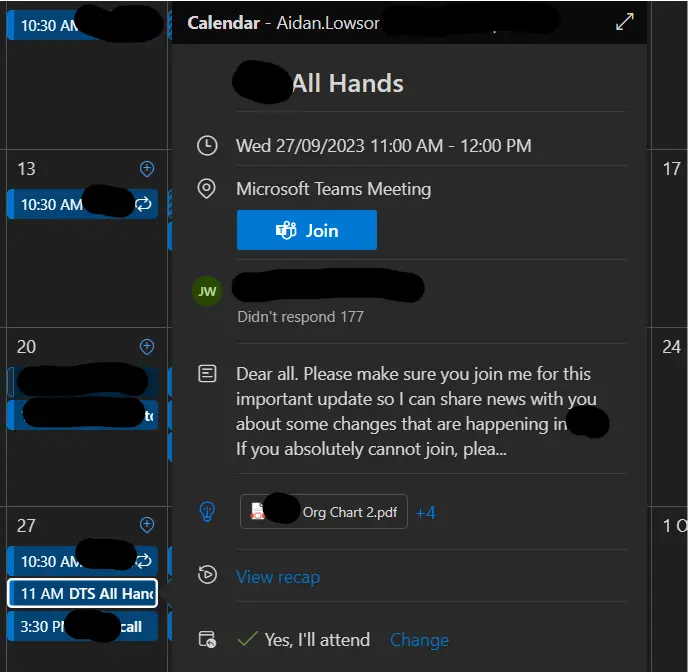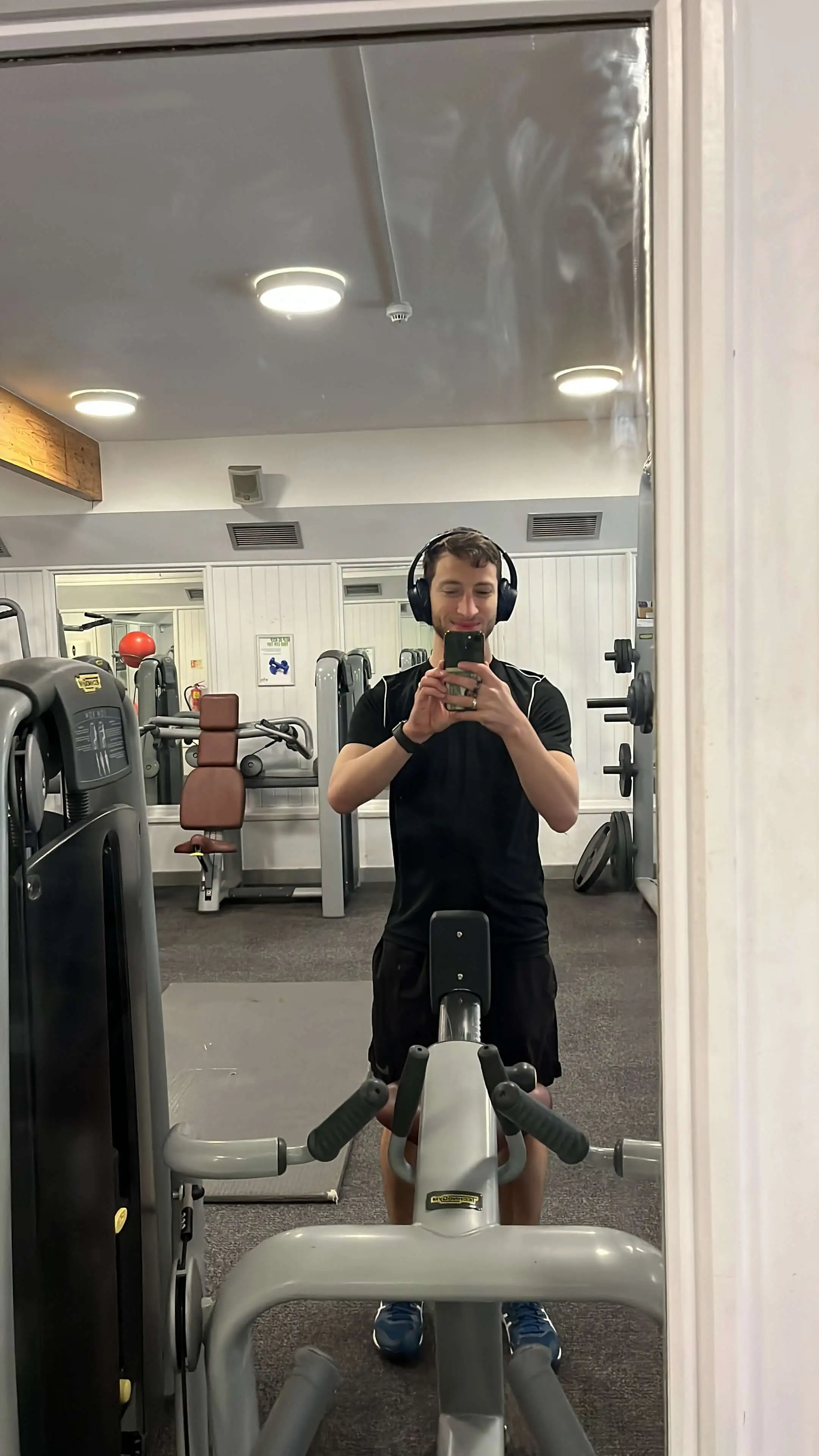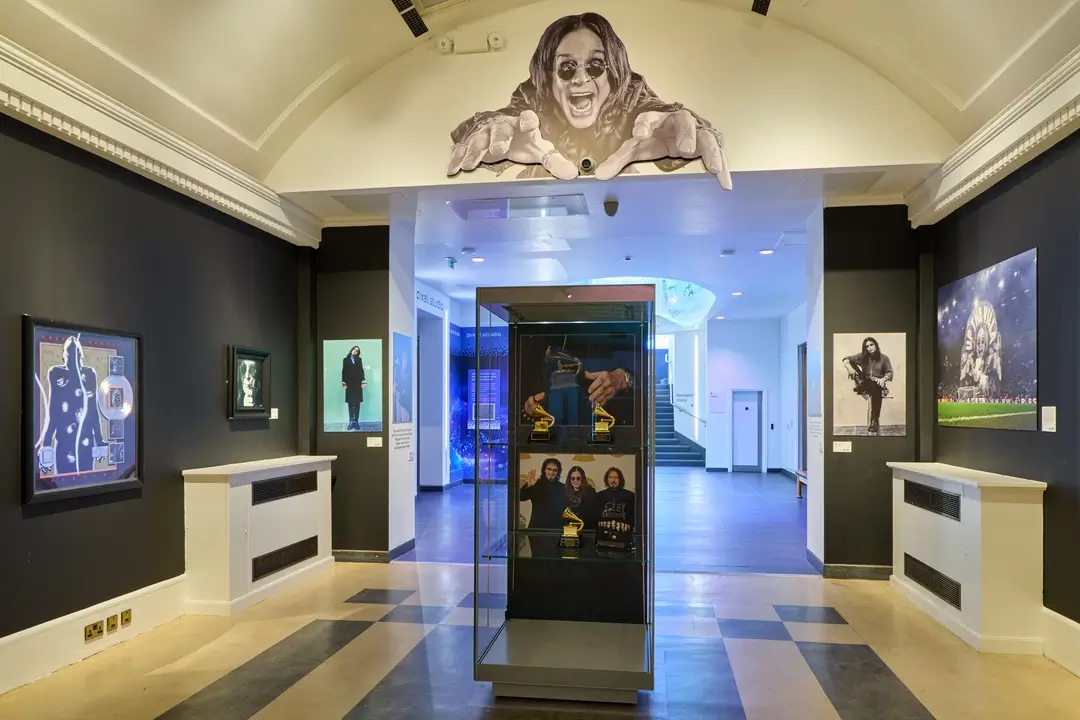
Published: January 24 2024
Surviving the Redundancy: My Journey of Reclaiming My Job
A bit of background
The company I used to work for was a tiny family-run business based in the middle of nowhere in the British countryside. It was a great operation where everyone made a real impact. As cringy as it sounds, it was like more of a family than a company, be it a sometimes dysfunctional family. I joined them in 2018 and learned heaps of things from deving frontends with React, and working with a Node backend and SQL server database to some more DevOps-type things like working with the AWS platform itself. Due to being a small company, everyone had to wear a variety of hats.
Things were super relaxed, we’d work hours that suited us, we used to play boardgames after our weekly sprint meetings and often went out to lunch together. Don’t get me wrong, when it came to it and the boss said it was time to push harder, we’d sacrifice weekends and do what we needed to do to deliver to some major clients in the high street banking scene.
Things were pretty ideal (I know the grass is always greener on the other side, but I genuinely have the best memories of my early years at this company). Things changed rapidly due to the pandemic, our office culture went down the toilet as we became a fully remote team, and in 2021, the company was acquired by a large multi-national American company. I immediately started working with a different team who was based on the other side of the country, although I did learn from that experience as we always do when we change up our usual routine, the team just didn’t have the same good vibes that my OG small company team did.
I’m just going to briefly touch on the structure of the company, as boring as it is, it is important to understand how it works at a high level to understand what went wrong and the reason why we were put in the difficult situation we were in.
So… we were working for a sub-section of this large global company, we were the tech guys! Made up of around 200 people from up and down the country. Above us was the “group”, who made up the other 7,000 or so people, and these guys were based all around the globe.
The downfall
Now this sort of thing is never simple, there are a lot of factors and moving parts in any corporation, especially one of this size. At least when I was in a company of 20 or so people it was a lot easier to see root causes and point fingers, that’s less so easy when the hierarchy is large and impersonal like it is in this large company.
We had two major projects, that almost all developers who worked on bespoke development were deployed onto. We have some developers who work on specific products but the majority of developers work on bespoke software for clients. These both came to an end around Christmas 2023, and there was nothing new in the pipeline to replace them. Understandably during the rough economy we’re in now, people aren’t as willing to spend millions of pounds on a bespoke bit of software.
Our company has a very “fair” way of setting what our yearly profit goals should be, being the amount of profit we made last year needs to be increased by 20%. One of the projects especially gave us a massive cash injection upfront of around £2,000,000. That and the fact they acquired a new tech firm based in the US, our annual profits were crazy high, meaning the amount they expected us to get this year was even crazier.
As it became clear we weren’t going to hit those targets this year, the company had to go into cost-saving mode. This resulted in two office closures, making people work fully remote or causing them to commute to London rather than somewhere more local to them. And yes, they announced a “restructuring” to “streamline” their business, which meant there were fewer jobs available.
The process
It was a standard Wednesday, I was on a weekly client call when I got a meeting invite titled “All hands”. 
It was odd, to get invited to a WHOLE company meeting with such short notice, the invite went out about 20 mins before the meeting started. We were greeted by a sombre-looking director, which wasn’t too far out of character for him but even still you could tell something was seriously wrong. The meeting was short, he told us about this restructuring that was going to be enforced and that as a result some of our roles MAY be at risk… and we were told not to ask any questions as we would have the opportunity in the upcoming one on one consultations later that week.
Later that week, in the consultation meeting, that’s when the news was dropped that my role was one of those at risk, at the time I was a DevOps engineer and in their new structure they just had pools of FE and BE devs and the platform was managed by an external team from outside our company.
There were a few of these consultation meetings and they felt more like corporate box-ticking than anything that was supposed to be of use to the individuals involved in this daunting process. The person running the consultation had to read a script, line for line, which I can understand was necessary from a legal point of view.
The way it worked was within the new structure of our organisation, there’s going to be two pools of 10 FE developers and 9 BE developers. I was nominated by my manager to go for the FE position as he thought that’s where I’d have the best chance of keeping my job. It was basically like being in an interview process for a job I never applied for. We were given job descriptions and everything.
The interview itself was more like a speech than an actual interview.: 
As it states in the invite, we were given the questions they’d ask us in advance, there were 5 technical questions that we were essentially graded on by our two interviewers who gave us marks out of 5 for each question. The final question was specific about the company’s values and our answer to that final question would only be taken into account if there was a tie in scores.
The interviewers would ask one of the pre-prepared questions and then just take notes in complete silence, in a way to make it fair for everyone they weren’t allowed to ask any follow-up questions. It felt strange talking to these two guys and not getting any sort of feedback on our answers. No chance to further clarify or explain ourselves, just answering and when we finished answering a question, they’d move straight onto the next one. Overall my interview lasted for 40 minutes, which I was proud of as we were allowed a maximum of 45 minutes, so I felt like I said everything I needed to say for each of the questions.
How I passed the interview
practice practice practice!!
I mean, everyone knows this already, but it’s crucial… practice makes PERFECT. However first, you need some answers to the questions to practise. Practise yourself reading out the interview questions as if you’re being interviewed, by basically doing the real thing we make ourselves prepared for the real thing. It sounds so simple, but it’s so true.
Get something down, even if it’s not perfect
The first thing I did when answering the questions was open up a blank Word doc and jot down the questions as headings. Under the headings, I’d write my immediate rough thoughts down and think of any examples I could use to back up my thoughts from my experience.
Research and refine
Using tools like ChatGPT and Google I could get some in-depth information that helped me sound like an expert for each of the 5 questions, I’d write down as much as possible and refine my rough answers
Write out a full comprehensive answer
Once I had all the information necessary to answer the questions, I wrote out my answers in full, with good articulation, grammar and everything. After reading it and refining it a few more times, I kind of got the gist of what I needed to say for each answer.
Turn the answer into bite-size bullet points
I turned in my long answers into some snappy bullet points, like 5 or so under each category. Then when practising I would just try to answer the questions with only the bullet points in front of me.
On the actual interview day, we’re going to be super nervous, it’s extremely important to make sure we have simple but clear notes that can get us through the interview despite our condition.
Time yourself
Time yourself. By this stage I had a solid set of answers, I could use my bullets to talk through it fluently and sound like I know what I’m talking about somehow. Now that’s all well and good, however after timing myself going through it from start to finish, it only took me 25 mins… now that isn’t going to cut it, so I went back to the research and refine stage. I developed into YouTube too and learned more and more about modern-day Frontend Web development, I expanded on my answers and could sound even more like an expert.
Once adding these bits to the fully written answers, I worked them down and added them to my bullets. Once practising these answers out loud again a few times I could further improve my notes once again.
Put it all together
Go through the answers out loud as many times as you can. If it’s an online interview (like mine was), turn on your webcam sit where you’ll be sitting and see how you look. Learn to look at the camera, not the squares on your screen and sound confident when delivering your answers. Even if you’re not a confident person, you can learn how to sound confident with enough practice.
Don’t forget the important things
When the news first dropped, it was all that was on my mind, I was an active person before, often out on runs and spending weekends away visiting places. However the prospect of redundancy consumed me and I couldn’t enjoy my time as much as usual, instead of staying active I’d just be practising interview techniques, job searching or working on my Portfolio to make myself as employable as possible. Now preparation is key, but there’s a balance we should always strive for, as when we’re in that stressed state we’re not doing both ourselves or anyone around us any good. It strains your relationships and damages your health.
Create healthy habits and stick to them
During this process I could see my health and energy deteriorating, so I forced myself out of it, I joined the gym for the first time in years and have stuck to it consistently since. I love it:

Don’t just go into survival mode, but use it as an opportunity to push you out of your comfort zone and thrive. Force yourself to pick up a healthy habit, even if it doesn’t seem like it, that’ll help you succeed. Remember the important things ❤️
Conclusion
I was very much in my comfort zone, but this has forced me to re-evaluate, learn new skills, and get into new routines. In a way, it’s re-sparked my passion for development and I’ll be sure to always keep my interview skills up-to-date as we will always need them. Don’t get too comfortable, at the end of the day we’re not in control of everything and that’s okay because we can choose to focus on the things we can control
Always keep your CV up to date and practise answering interview questions out loud. A business is made up of many parts, even if we succeed, other parts may fail and we could be at risk as a result.


